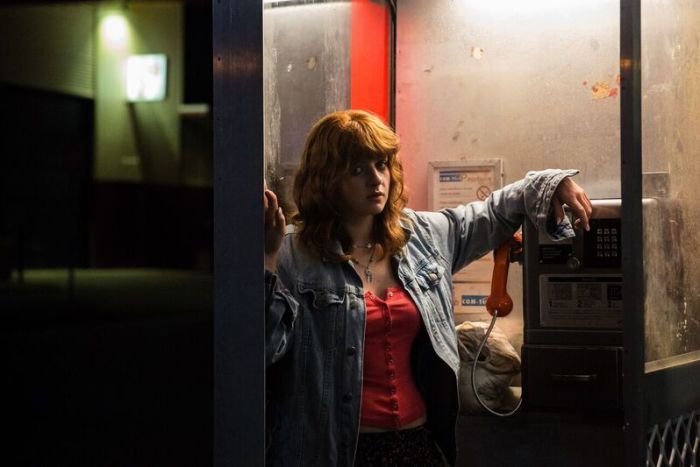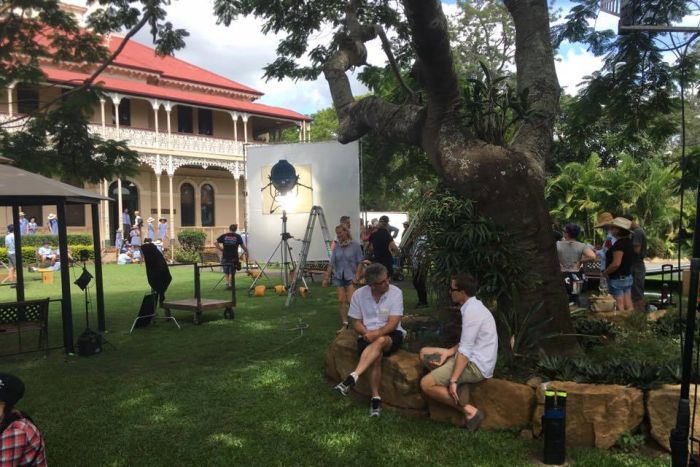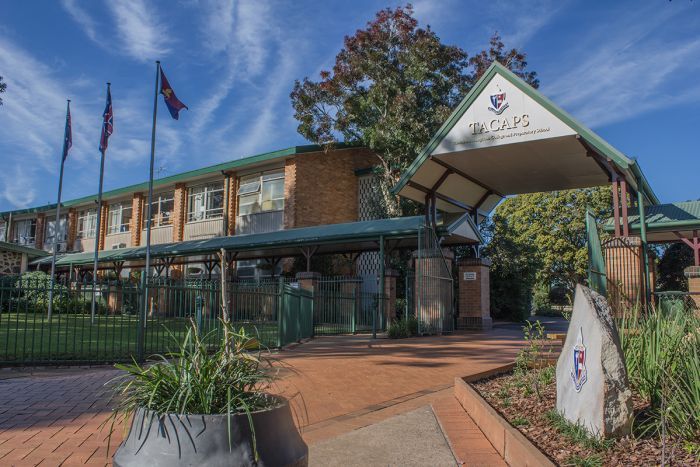Don't Tell: "Australia's Spotlight" Shines on a Dark Chapter of Institutional Cover up of Child Sexual Abuse
By Peter Gunders
Child protection advocates hope a film dealing with one young woman's battle to fight institutional cover up of abuse in Toowoomba will inspire others to tell their stories. "I was brought up in an era where children had to be seen and not heard," said author and lawyer Stephen Roche, for whom Don't Tell is an intensely personal story. Based on Mr Roche's book of the same name, the film is the story of a Toowoomba school student, known only as Lyndal, her experience of abuse while a boarder at a prestigious Anglican school in the 1990s, and the legal proceedings that followed 11 years later. "I think it's a film about justice," Mr Roche said. The high-profile case has been credited by Bravehearts founder Hetty Johnston as an important step leading to the Royal Commission into Institutional Reponses to Child Sex Abuse. "If she wasn't such a courageous girl all those years ago, we wouldn't know what had occurred at this place," Mr Roche said. "I believe when children are encouraged to speak up when something's not right, we'll all be better off."
The film has been in production for the past three years, but Mr Roche has lived the story for much longer. He was the lawyer Lyndal first approached in 2001, and he said it was the case that changed his life forever. "Whilst this occurred in Toowoomba, it's a universal story," he said. "It's a story that gets brought out every day in the royal commission. It's as relevant today as it ever has been." The film was shot in southern Queensland, with Ipswich standing in for the garden city for several key locations. "It wouldn't have been right to shoot at the school in Toowoomba," he said. "I think Toowoomba is depicted in a very favourable light. It's very much a 'happening city', with airports and highways and shopping centres being built. "But I think it's very important to show Toowoomba warts-and-all, and talk about our social issues as well."
Because the film deals with historical events, child protection advocate, and founder of Bravehearts, Hetty Johnston described the film as "Australia's Spotlight", referring to the Academy Award-winning film about a group of reporters who uncovered Boston's catholic child sexual abuse scandal. "I think the court case about what happened out of Toowoomba Prep has had an enormous effect across the country," she said. "It's a difficult issue to tackle, and a tough one to talk about. A lot of people still don't want to hear about it." In a statement to the ABC an Anglican school spokesman wrote: In 2002 Dr Phillip Aspinall became Archbishop of Brisbane and ordered an independent Board of Inquiry (headed by a QC) to review the Diocese's handling of abuse claims, including Lyndal's case. The Archbishop implemented the Inquiry recommendations which included the mandatory reporting of all abuse allegations to police and the appointment of a Director of Professional Standards. A Procedure Manual for Schools was developed with clear guidelines for school staff, complaint reporting mechanisms and safe places for students. That manual is now called Student Protection in Anglican Schools Policy and Procedures 2015. The School has adopted a culture where children and parents are believed when they raise concerns. We are hopeful that Lyndal's story encourages other brave survivors of abuse to come forward to receive the care and assistance they deserve. Ms Johnston said the film has brought up a lot of her own memories. "I came into this when the story was in the newspapers. The stories that were being told were encouraging other people to speak out, and the conversation around the country was explosive," she said. "And that conversation was a direct result of what happened in that courtroom. Survivors everywhere were coming forward. It changed everything. "We can be proud of our response to what started in that courtroom, which is the royal commission we're having now. And what we are learning now is being noted overseas." But she said more work needed to be done, and called for the royal commission to be expanded. "We have to honour our children. We can't tell them to shush and go away," she said. "We need this royal commission to continue and to look at our family law system, because if there was ever a tragedy much worse than what happened in the church institutions, it's what is happening now. "The kids are telling us, and the system is not listening." Don't Tell will be released on May 18, 2017.
|
.
Any original material on these pages is copyright © BishopAccountability.org 2004. Reproduce freely with attribution.


